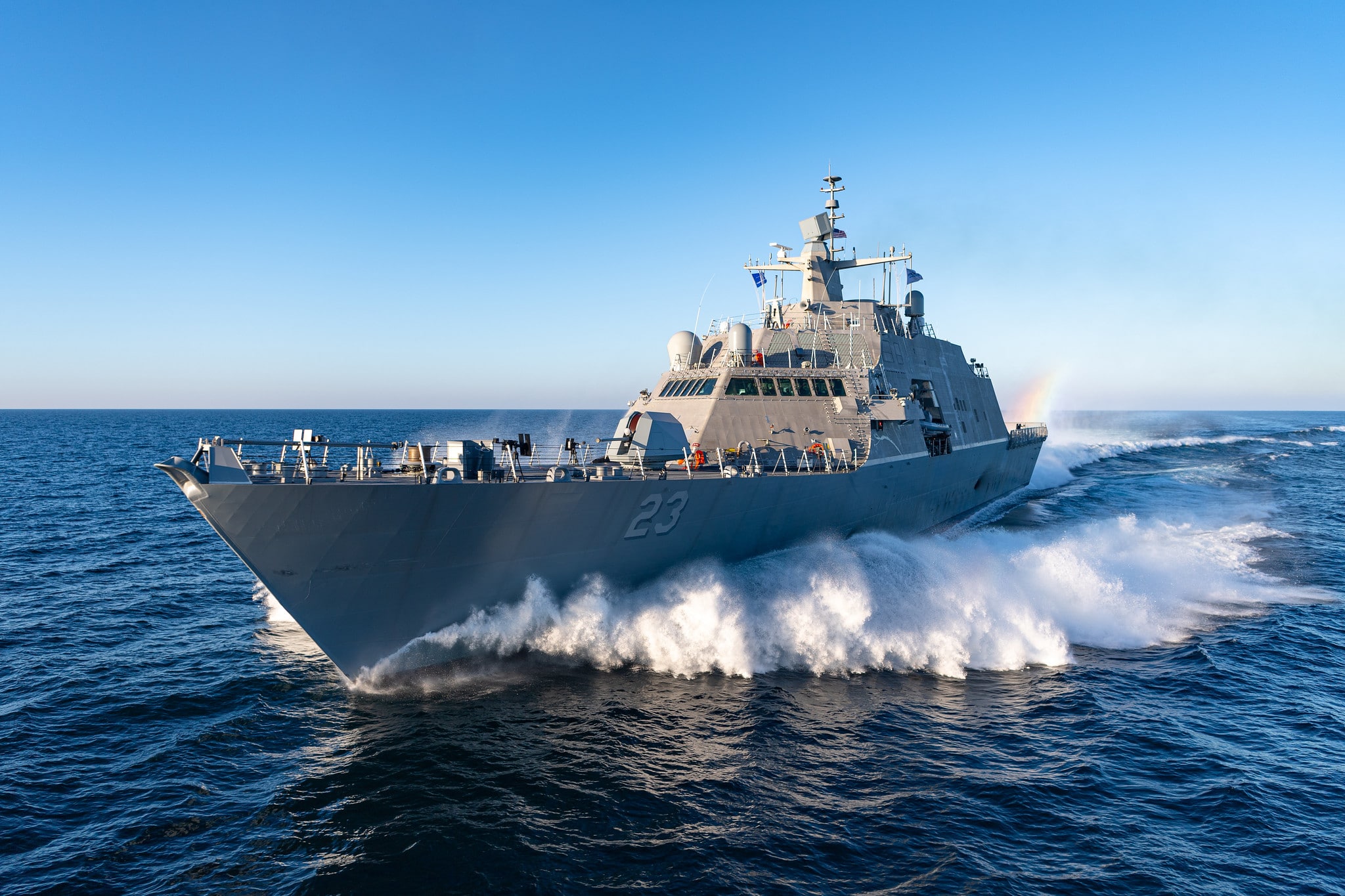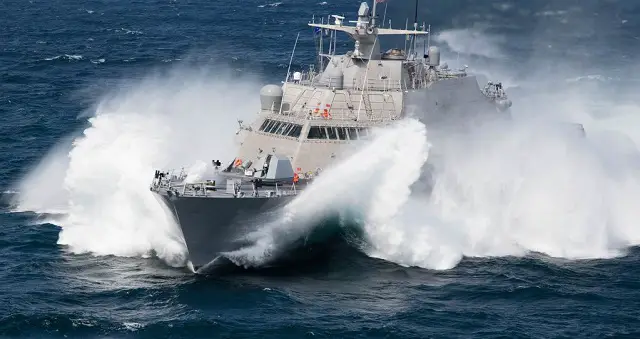
Lіttoral Combat Ship (LCS) 23, known as the USS Cooperstown (LCS-23), has successfully completed its acceptance trials in Lake Michigan in December 2020. Unlike previous ship classes, the future USS Cooperstown is designed to support multiple mission modules, including anti-submarine warfare, mine countermeasures, and surface warfare missions. During these trials, the ship proved its readiness to join the U.S. Navy fleet.
The USS Cooperstown (LCS-23) is the first of two Freedom-class littoral combat ships to be procured by the U.S. Navy from Marinette Marine Corporation in Wisconsin. The U.S. Secretary of the Navy, among others, attended the naming ceremony of the USS Cooperstown on 25 July 2015 during a ceremony at the Baseball Hall of Fame, which is located in Cooperstown, New York. The ship’s sponsor, Mrs. Marlene Marnett, was awarded the contract to build the ship on 19 June 2020 and christened the ship on 29 February 2020.
The Freedom-class is one of two classes of the littoral combat ship program, built for the United States Navy. The Freedom-class was proposed by a consortium formed by Lockheed Martin as “prime contractor” and by Fincantieri as “subcontractor,” through the Marinette Marine Corporation (manned by a workforce formed by approximately 10,000 people). The ships were proposed in two variants, the Independence-class and the Freedom-class, with the former being implemented by Austal. The ships were approved by 55 votes to one in the littoral combat ship’s proposal zone. Despite initial plans to operate a total of 55 ships, the U.S. Navy has since announced plans to order up to 10 additional ships of each class, for a total of 12 ships per class.
The ship is a semi-planing steel monohull with an aluminum superstructure. It is 377 feet (115 meters) in length, displaces 3,500 metric tons (3,400 long tons), and can achieve a speed of 47 knots (87 km/h; 54 mph). The design incorporates a large reconfigurable seaframe, reverse volume, helicopter deck with Io capable hangar, reconfigurable payload bays, and a reconfigurable mission module support facility. The foredeck has a mooring arrangement for a 57 mm gun turret or mission module equipment and one of the ship’s two boats (manned and unmanned) from both sides. The core hull has a modular design from which a 57 mm gun turret or missile launcher can be used for a 57 mm gun turret or missile launcher, from which reconfigurable payload bays for boats and aircraft can be used.







